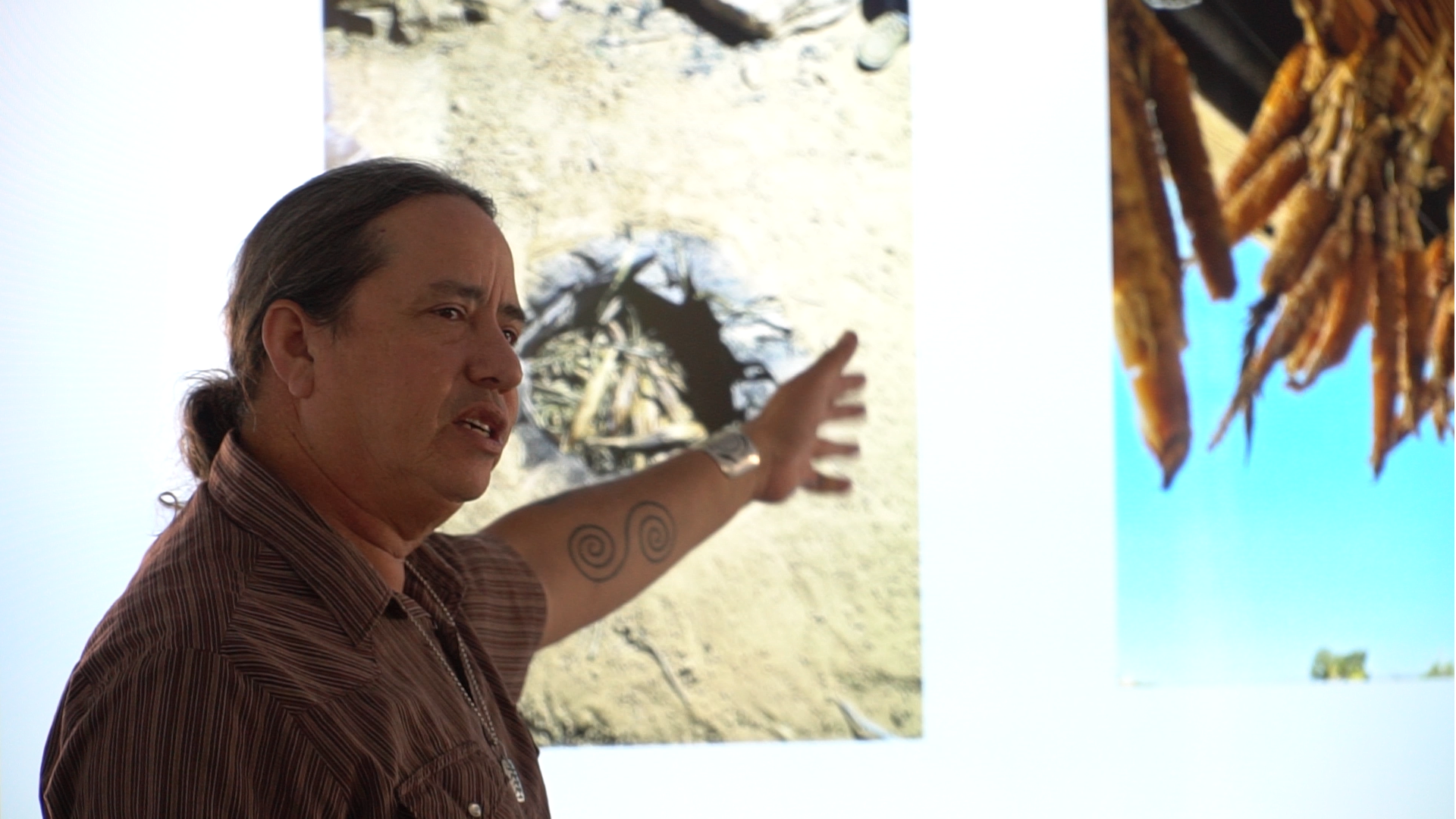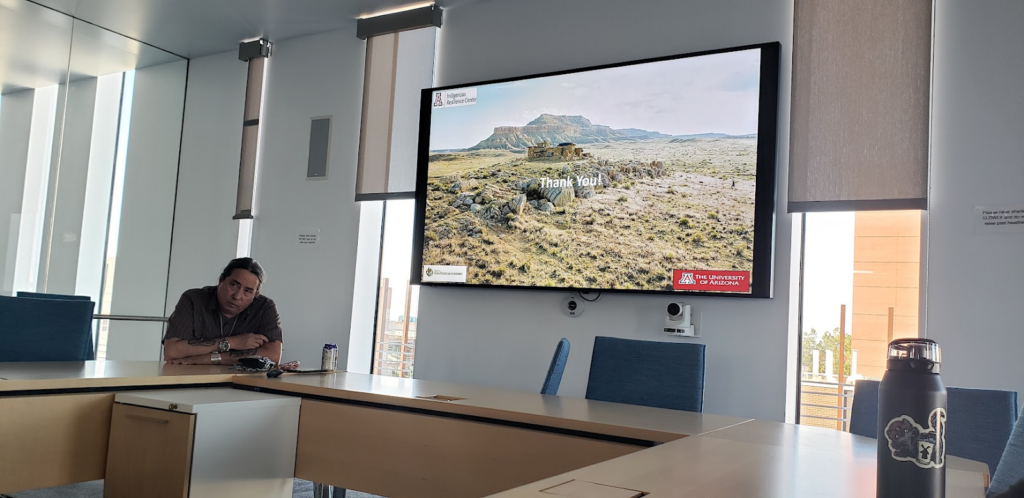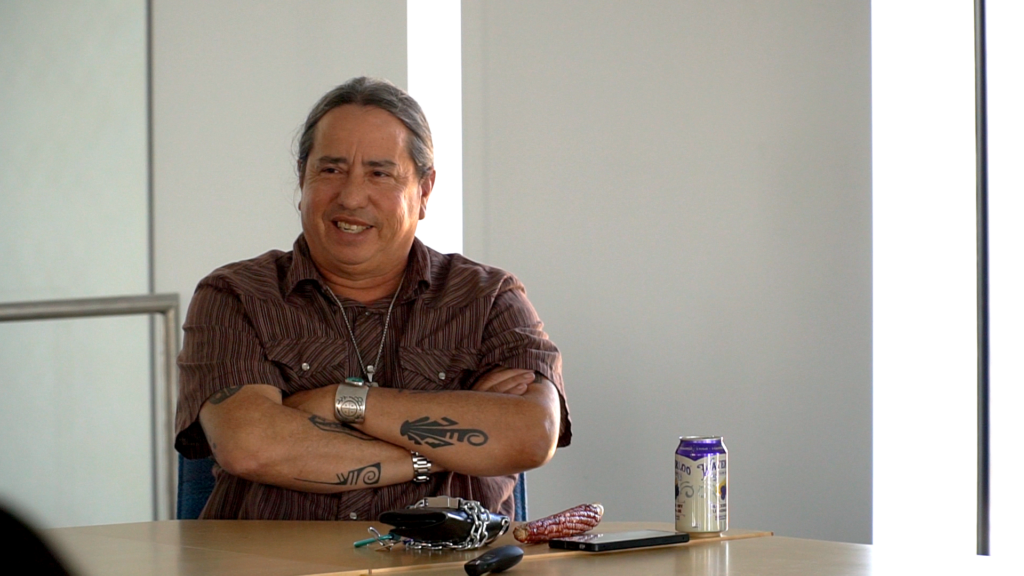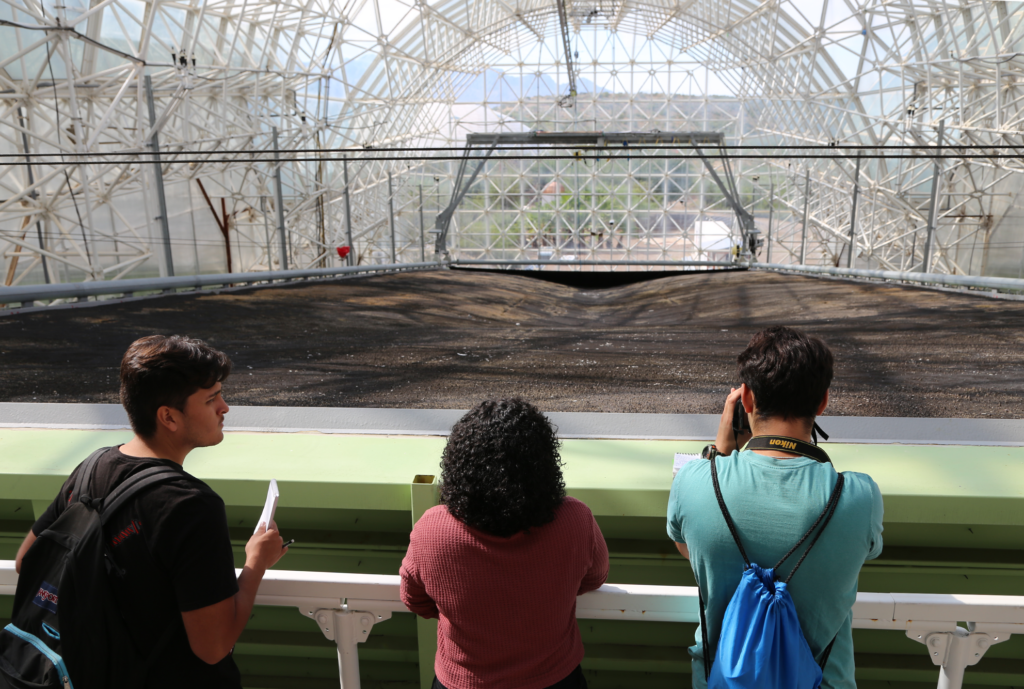
Aaron Dye

Aaron Dye
In less than 30 years experts have projected 10 billion people will live on Earth. At the same time, climate change is expected to add increasing pressure on the agricultural sector, drastically changing the way food is produced.
As the global temperatures increase, a big question that many are asking is, “How will we feed all of these people?”
In October 2023, I had the opportunity to visit some researchers, farmers, scientists, and others in the food and water realms in Tucson, Arizona, where climate change is being felt and lived by people on a daily basis. Here are three main takeaways that stuck with me when I left Arizona.
Traditional ecological knowledge (TEK) is information held and created by Indigenous peoples over millennia about their local environment, based on an understanding of humans’ interconnectedness with the rest of nature and living in right relationships with other beings.
TEK has served Native people as they continue to adapt and persist through drastically changing times. Michael Kotutwa Johnson, Ph.D., described his Hopi ancestors and how they didn’t feel the starvation and poverty effects of the Great Depression because they were able to grow their own food.
Even as drought affected many farmers at that time, because of the TEK that Hopi people had cultivated through deep relationships with their home over many years, Johnson’s ancestors and people were able to feed themselves and persist.
Learning from the past and looking ahead, Johnson said food security means making sure there’s food for his people’s future generations. This food must be culturally relevant, nutrient dense, and adapted to the local environment. In order to ensure security in the future, more biodiversity is needed in food. Today, Indigenous people protect 80% of global biodiversity.
This biodiversity is essential in food systems and being able to grow crops that are resilient and adaptable to the changing climate. One example of TEK and resulting food resiliency is that Hopi farmers have terraced their gardens, helping to hold and spread the limited rainwater that often comes in sporadic heavy downpours. By being able to slow water down and let it seep through terrace steps to all of the crops, more plants can thrive in an environment that receives under 10 inches of rain per year.

In order to be able to learn from others, you first need to respect them and be able to listen. Director of The University of Arizona Water Resources Research Center Sharon Megdal, Ph.D., shared a concept about listening that she called, “two-eared hearing.”
She first discussed the Native concept of two-eyed seeing, or etuaptmumk, where one eye sees the strength of Indigenous knowledge and ways of knowing and the other eye sees the strength of western knowledge and ways of knowing.
The key is learning how to see with both eyes to benefit everyone. Megdal extended this concept to listening—taking the time and being able to listen to many different ways of knowing and the knowledge that others hold.
The listening that Megdal spoke of is an essential practice in building and nurturing relationships. Relationships are important in many ways for growing food and feeding people—connecting people to the land and water, and connecting people to other people.
Johnson emphasized the importance of having a strong connection with place for his and other Native people, which has facilitated the creation of TEK. Evidenced by the certain varieties and crops that Hopi people have adapted to grow in the hot, dry Arizona desert over millennia, is the tending of relationships with the land.
People need to understand where they are in the world in order to best grow food there. This is only possible through being attentive to the land, developing care for it, and “choosing to belong” as Robin Wall Kimmerer says.
Another set of relationships is amongst people. At one point, Johnson spoke of the capacity of the world to feed and take care of each other, if only people shared more. People are more likely to share and support others if they have a relationship and are able to trust and care for each other.

Megdal commented on a similar idea, saying that a lack of collaboration is the root of many issues. Instead, functioning relationships and making connections is essential in moving forward and supporting everyone.
Senior research specialist at Biosphere 2’s Landscape Evolution Observatory (LEO), Aaron Bugaj, discussed the importance of collaboration and vulnerability in people learning, understanding their limitations, and ultimately growing together.
At LEO, people from different fields and areas of expertise meet every week to collaborate on their work in understanding systems and how water moves through landscapes. Bugaj said of the team, “We have value to bring individually but we recognize we have to work together and be vulnerable. And that’s been really refreshing to see—I’ve never seen that in 10 years of academic science before.”
To move forward together, people need to first come together through building their individual relationships.

When asked whether principles of TEK can meet future demands of feeding 10 billion people, Johnson’s response was an immediate “no.” Even with the “Indigenous ingenuity” of TEK, unfettered growth is not sustainable.
The drive of consumption, exploitation, and extraction, which are all causing climate change, are pushing people out of balance and sync with the rest of the environment. Many Native traditions in the Southwest say that nature keeps everything in check, in this case realigning people through famine and lean times.
Unmitigated urbanization has negative impacts on biodiversity, water drainage, and climate. To move into the future, the need of communities in Arizona must be rebalanced. Rather than large-scale and highly dependent food systems, smaller communities, smaller farms, and more community work are necessary.